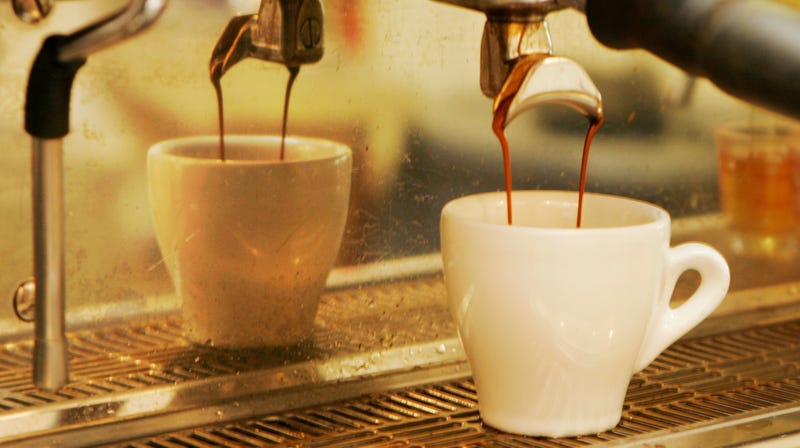 A cup of coffee.Photo: AP
A cup of coffee.Photo: AP
Officials with California’s Office of Environmental Health Hazard Assessment (OEHHA) have intervened to nullify a recent court ruling saying coffee sold in the state—say, like at a local Starbucks—must be accompanied by warning labels saying brewed coffee contains the carcinogen acrylamide.
The Los Angeles Superior Court ruling ordered producers to put warning labels on the packaging of all coffee sold throughout the state in accordance with a 1986 law, Prop 65, which requires cancer warnings on known carcinogens. Acrylamide, a common byproduct of frying, roasting, or baking many foods, is on the list (which has landed junk food companies in legal trouble over alleged non-compliance before). But per the Associated Press, the OEHHA is now seeking a specific coffee exemption, citing a “review of more than 1,000 studies published this week by the World Health Organization that found inadequate evidence that coffee causes cancer.”
While the court found the coffee industry failed to demonstrate the health benefits of drinking coffee outweighed any cancer risk or show that said risk was insignificant, the AP wrote, the OEHHA feels otherwise:
The state’s action rejects that ruling.
“The proposed regulation would state that drinking coffee does not pose a significant cancer risk, despite the presence of chemicals created during the roasting and brewing process that are listed under Proposition 65 as known carcinogens,” the agency said in a statement. “The proposed regulation is based on extensive scientific evidence that drinking coffee has not been shown to increase the risk of cancer and may reduce the risk of some types of cancer.”
If the regulation is pushed through, coffee producers could stand to avoid the “massive civil liabilities” that could follow their loss in court, the AP added.
According to SFGate, even if the regulation is adopted after a period of time for public comment and approved by administrators, it will “almost certainly [be] challenged in court.” It would also do away with the labels.
“The takeaway is that the state is proposing a rule contrary to its own scientific conclusion,” attorney Raphael Metzger of the nonprofit Council for Education and Research on Toxics, coffee producers’ opponent in the court case, told the AP. “That’s unprecedented and bad. The whole thing stinks to high hell.”
In the time since the state concluded acrylamide was present in coffee in sufficient quantities to pose a cancer risk, though, scientists have come to different conclusions.
Frank Hu, who chairs the nutrition department at the Harvard T.H. Chan School of Public Health, told the Seattle Times, “In animal studies, if you give animals a very high dose of acrylamide, it may cause cancer. However, there is no evidence that acrylamide intake is related to cancer in humans.” He added that studies showed no correlation between acrylamide intake and breast, endometrial, or ovarian cancer; the World Health Organization’s International Agency for Research on Cancer reviewed the evidence in 2016 and came to the determination that coffee is not carcinogen.
Hu told the Times that many studies showing a link between coffee and cancer do not account for smoking, and “People who smoke tend to drink coffee.”
Some research in fact backs the inverse conclusion, that coffee has health benefits including antioxidant and anti-inflammatory properties—though yet other research has indicated for some people with a genetic predisposition to slow caffeine metabolizing, it can significantly increase the risk of heart attacks.
OEHHA deputy director and spokesman Sam Delson told SFGate that the coffee industry was not involved in the decision, and that the rule could be implemented as early as January 1st, 2019.
[Associated Press/SFGate]